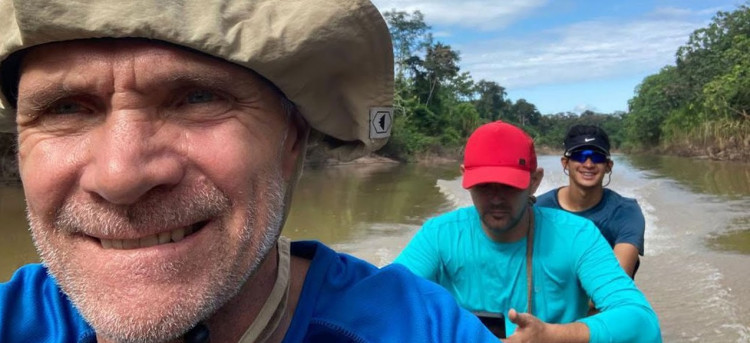As evidence grew that British journalist Dom Phillips and Indigenous specialist Bruno Pereira were murdered in the Amazon, environmentalists, coworkers, and family members expressed outrage, blaming Brazil's government.
Phillips' family released a statement in which they expressed their "heartbroken" over the finding of two remains on Wednesday, which they interpreted as proof that the pair had been murdered.
The killings, according to Greenpeace Brazil, are "a direct result of the agenda of President Jair Bolsonaro for the Amazon, which opens the way for predatory activities and crimes to be reproduced in broad daylight."
Phillips, 57, and Pereira, 41, went missing on June 5 in a remote area of the rainforest known for illegal mining, fishing, and logging, as well as drug trafficking.
Ten days later, on Wednesday, a suspect named Amarildo da Costa de Oliveira led police to a location where he claimed to have assisted in the burial of victims near the city of Atalaia do Norte, where the pair had planned to stop.
Human remains discovered at the site were to be transported to Brazilia on Thursday and officially identified by experts. The results should be available by next week.
Late Wednesday, the federal police chief of Brazil's northern Amazonas state declared the remains had "a 99% probability" of belonging to the missing men.
It appeared like they had been shot.
When they went missing, Phillips, a long-time contributor to The Guardian and other leading international newspapers, was working on a book about sustainable development in the Amazon with Pereira as his guide.
Pereira, an expert with Brazil's indigenous affairs agency FUNAI, had received numerous threats from loggers and miners attempting to encroach on remote Indigenous territory.
The suspected killings were denounced as a "political crime," by the Univaja Indigenous Peoples group, which had participated in the search, while the Brazilian Association of Investigative Journalism said "the president and his allies have become protagonists of attacks on the press" uncovering environmental crimes.
Phillips' colleague at The Guardian, Jonathan Watts, told AFP in London that the "monstrous" crime should not dissuade journalists and others from uncovering the truth.
Since taking office in 2019, Bolsonaro has advocated for the development of the Amazon, the world's largest tropical rainforest.
On Wednesday, he faced new criticism for claiming Phillips' reporting on the region was "disliked" and that he should have been more cautious.
The Javari Valley, near the Peruvian and Colombian borders, is home to roughly 20 isolated Indigenous groups where drug dealers, loggers, miners, and illegal fishermen operate.






